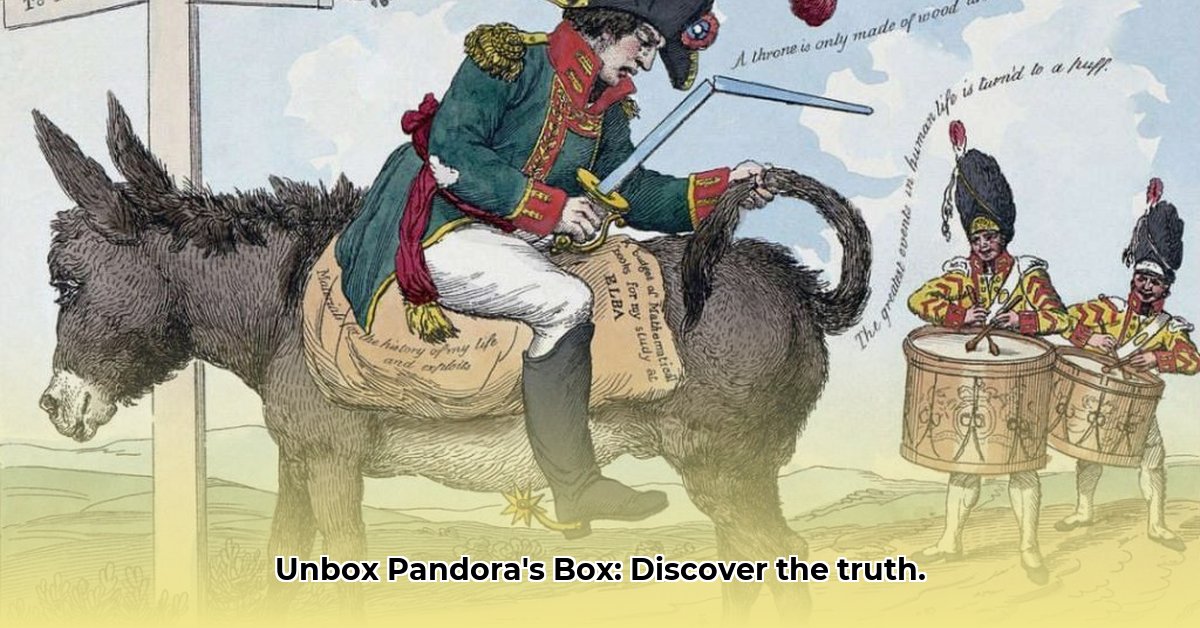
Unpacking the Ancient Greek Myth
So, you’ve heard of Pandora’s Box, nê? That story about a container brimming with all sorts of evils? But have you ever truly considered the depth of meaning within this ancient tale? It’s far more nuanced than a simple morality play. We’re diving deep into the ancient Greek myth of Pandora's Box – or, more accurately, Pandora's pithos – to explore its multifaceted layers of meaning. It's not merely a tale of woe; it's a complex reflection of human nature and our relationship with the world around us. Isn't it fascinating how a story from so long ago still speaks to us today?
How did such a seemingly simple story become so enduringly significant?
The Original Story: Beyond the Simple Box
The common narrative goes like this: Zeus, king of the gods, felt wronged by Prometheus, who'd gifted fire to humankind. As retribution, he created Pandora, a stunning woman, and presented her with a pithos (a large storage jar, not a small box as commonly depicted). This distinction is crucial! The pithos was a common farming implement, deeply symbolic of life's cycles – growth, decay, and renewal. Inside, Zeus imprisoned various evils: disease, war, famine – all life's hardships. He then sent Pandora to Epimetheus, Prometheus's brother.
Epimetheus, unlike his wiser brother, lacked foresight. He opened the pithos, unleashing these evils upon the world. But here's the twist: along with the evils, Elpis, the spirit of hope, also escaped. Even amidst suffering, hope remained. A powerful message, isn't it?
Diverse Interpretations of Pandora
The story lends itself to various interpretations. Some view Pandora as a symbol of female weakness, blaming her curiosity for humanity's suffering. However, this interpretation has been largely critiqued by modern scholars, who argue it ignores the larger context.
Others see the myth as a reflection of human nature – a cautionary tale about the consequences of our choices and the inherent dangers of unchecked curiosity or ambition, echoing Prometheus's act of stealing fire. It prompts us to question: Was Prometheus's act justified? Did Zeus overreact? What does this tell us about ourselves?
The Significance of the Pithos: A Container of Cyclical Existence
The shift from pithos to "box" significantly alters the narrative. The pithos, connected to agricultural rituals, embodies the cyclical nature of life – birth, death, rebirth, harvest, and so on. It represents the natural flow of both good and bad, a continual cycle. The "box," however, suggests a more static, contained evil, simplifying the inherent cyclical complexity of existence.
Hope's Enduring Power: A Positive Perspective
Elpis, the spirit of hope, remains a focal point of debate. Some see her as a cruel jest, a mere palliative to alleviate suffering. Others, however, consider her a powerful symbol of resilience, a reminder that even amidst hardship, a glimmer of hope persists; a potent symbol of perseverance and the enduring human spirit.
The Myth's Continuing Relevance
Even today, the myth of Pandora's pithos holds profound significance. It serves as an allegory for human nature, our fallibility, and our capacity for hope. It raises questions about responsibility, consequence, and the delicate balance between progress and risk. Ultimately, this enduring relevance stems from its ability to force introspection upon us regarding our own lives and decisions.
Isn't it remarkable how a story thousands of years old still resonates so deeply?
Further Exploration: Your Journey Begins Now
Pandora's pithos remains an endlessly fascinating subject, sparking debate and encouraging novel interpretations. The myth's enduring power lies in its ability to hold such intense relevance for humans today irrespective of their cultural background. What are your thoughts? What does the myth mean to you? How does it connect with your understanding of the world? The conversation continues.
Deconstructing Conflicting Interpretations: Female Culpability vs. Societal Critique
Key Takeaways:
- Pandora's myth encompasses multiple layers, far exceeding a simplistic tale of female wrongdoing.
- Interpretations evolve across time and cultures, reflecting changing values.
- The emphasis on female culpability often overshadows broader themes of human nature and societal consequences.
- Analyzing the myth requires considering its historical context and its evolving narrative.
- Examining diverse perspectives facilitates a richer understanding of the myth's lasting power.
Ancient Greek Context: Beyond Simple Blame
The story of Pandora's Jar isn't merely a cautionary tale; it reflects anxieties within ancient Greek society. Hesiod's Works and Days depicts Pandora, crafted by Hephaestus, as a punishment for Prometheus's defiance. But is she solely responsible for unleashing suffering upon humanity? Or is she a scapegoat for broader societal problems? This question lies at the heart of the debate.
A Woman's Curse or Humanity's Flaw?
Many interpretations focus on Pandora's actions as representing female weakness and curiosity, portraying her as the sole cause of humanity's misfortunes – a narrative that resonates within patriarchal structures. However, alternative analyses view her as a victim of patriarchal society itself, created as a tool of punishment. Her curiosity then becomes symbolic of human nature's inherent quest for knowledge.
The Jar's Metaphorical Weight
The "jar" itself carries significant symbolic weight. The shift from pithos to "box" subtly alters its meaning. The "box," often associated with confinement and secrets, adds another layer to the interpretation. This evolution demonstrates how narratives adapt to different cultural contexts and languages, highlighting that meaning isn't static but evolves.
Hope's Ambiguous Role
The presence of Hope at the bottom of the jar adds further complexity. Does it represent genuine redemption or a cynical commentary on enduring human suffering? The ambiguity contributes to the myth's continuing power.
Modern Interpretations: A Fresh Perspective
To fully understand this intricate tapestry of meanings, we must consider both the historical context and modern interpretations. Feminist perspectives, for instance, challenge traditional readings, shedding light on the patriarchal structures influencing Pandora's narrative. By examining diverse perspectives, we achieve a far richer understanding of the myth's enduring impact.